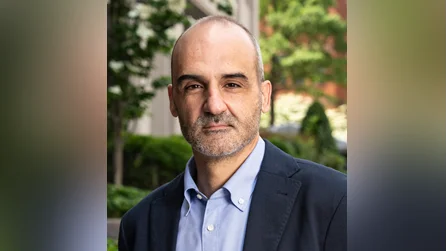An International Monetary Fund (IMF) staff team led by Pablo Lopez Murphy visited Mozambique from August 21 to 29, holding discussions with government officials on the country’s economic and financial situation. The visit focused on policies required to support macroeconomic stability while addressing development needs and encouraging job-inclusive growth.
At the end of the mission, Mr. Lopez Murphy stated: “The IMF staff team has held constructive discussions with the Mozambican authorities on the fiscal, financial, and structural policies needed to underpin macroeconomic and financial stability, generate jobs, and enhance medium-term growth."
He noted that Mozambique's economy is gradually recovering after a sharp slowdown between October 2024 and March 2025. Tax revenue rose by 2.6 percent year-on-year in the second quarter of 2025 following a decline earlier in the year. For 2025, GDP growth is projected at 2.5 percent as activity picks up, especially in services.
“Inflation remains contained amid tight financial conditions. Inflation was at 4 percent year on year in July, below the implicit target of 5 percent. The Bank of Mozambique initiated a loosening cycle in January 2024, cutting the policy rate by 700 basis points so far (to 10.25 percent). The central bank also reduced reserve requirements on local currency deposits, from about 39 to 29 percent, in late January 2025, providing further support to the economy," said Mr. Lopez Murphy.
He added that “the current account deficit in the first half of 2025 remained subdued at $1.3 billion,” attributing this partly to foreign exchange shortages affecting imports.
On fiscal matters, Mr. Lopez Murphy reported: “The fiscal deficit reached 2.4 percent of full year GDP in the first half of 2025 compared to 2.8 percent in the first half of 2024." He highlighted continued pressure due to slow tax revenues alongside rising government expenditures.
The IMF recommended decisive action for restoring macroeconomic stability and improving growth prospects: “Front-loaded fiscal consolidation is warranted to restore fiscal sustainability, reduce financing needs, and put debt on a clear downward path to reduce debt vulnerabilities, while creating fiscal space to support development and protect the most vulnerable.” He also called for greater exchange rate flexibility.
Mr. Lopez Murphy pointed out emerging interest from foreign investors across sectors but emphasized that "addressing macroeconomic imbalances is essential to unlock the full potential of foreign direct investment and sustain investor confidence.”
During their stay, IMF staff met with Finance Minister Carla Loveira; Jamal Omar from Bank of Mozambique; other senior officials; development partners; and private sector representatives.
“The team wishes to thank the Mozambican authorities for their excellent cooperation and for the frank and constructive dialogue during the mission,” concluded Mr. Lopez Murphy.
Discussions between Mozambique's government and IMF staff are expected to continue over coming months.

